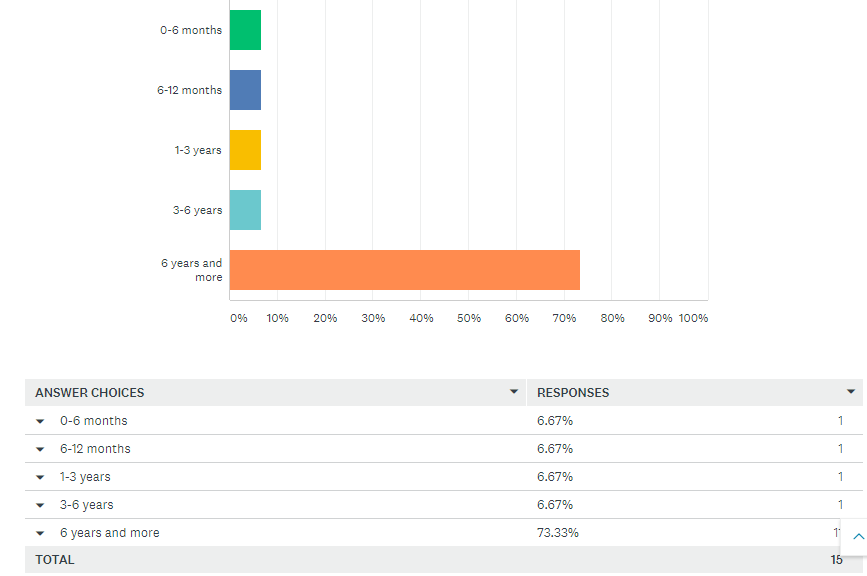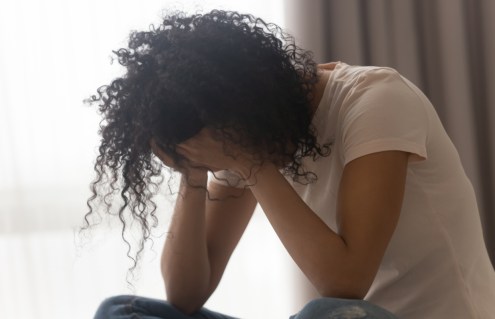What is it like to live with someone with depression?
Two weeks ago I published the results of a short survey I asked people to anonymously fill in about anti-depressants. I then followed up with another survey asking people what it is like to live with someone with depression.

Two weeks ago I published the results of a short survey I asked people to anonymously fill in about anti-depressants. I then followed up with another survey asking people what it is like to live with someone with depression. Only 15 people have responded compared to 42 on the other survey. I wonder if there is a sense of ‘disloyalty’ about talking about such a difficult shared experience of living with depression from the outside. Thank you to those of you who did reply.
I should have asked what relationship people were to the person with depression but didn’t. However, it seems that there are a couple of respondents who lived with parents with depression and the rest talk about romantic adult relationships. I find what they say to be heart-breaking, for all concerned.
Here’s what was said. (I have left in any spelling mistakes when quoting directly from the survey.)
How long have you been living with someone with depression?

How much did the other person’s depression affect you?
People were asked to move a slider from 0 which was ‘living with someone with depression hasn’t affected me at all’ to 100 which was ‘it has totally affected me’. 80 was the mean response meaning that living with someone with depression has a very significant impact on those around them.

How did it affect you?
This is what people said:
- ‘Changed my behaviour. Made me variously angry & frustrated. Affected my mental health too.’
- ‘Worried about other person a lot. Concerned about the future. Low mood even when I felt good. Frustrated. Questioning the relationship.’
- ‘Constant emotional upheaval. Uncertainty about how someone will be when I come back to the house. Draining my energy. Doubts about whether I should stay in the relationship but also wanting to be there for the person.’
- ‘Feeling of isolation Despair Loneliness Being a verbal punch bag Lack of kindness Lack of thought for me Unclear what to do to help Understanding there’s nothing I can do to help My help and support not wanted Sexually frustrated as there‘s no sex drive from them for years Having to roll with the good times when euphoria set in Started to neglect what’s important to me Hiding the fact they have depression from family and friends Covering up bad behaviour Being there to pick up the pieces when they get too drunk’
- ‘Not a lot’
- ‘I became a carer for my parent, it made me way more empathetic and understanding of people with mental health problems’
- ‘Hard to be happy for two people.’
- ‘I thought I could save them. I thought it was me. I felt helpless when I could not help them. I felt decided when they treated me badly and would not seek help. It affected my weight, self esteem and well-being. I felt guilty when they left me and I felt better.’
- ‘Concern. Worry, frustration and avoidance’
- ‘That feeling of never being able to make them happy no matter how hard I tried was devastating’
- ‘Frustration, sadness, feeling inadequate, unable to help,’
- ‘It changed everything, I was 13-15 and received the blame for everything that was wrong, my sister became anorexic, I drank and mum’s severe depression sank into a complete breakdown, she was very ill.’
- ‘He couldn’t ‘feel’ anything. Including any love for me. Heartbroken.’
- ‘Unsure of what to expect on any one day. Made relationship with the person strained. Difficult to understand how they were feeling and how that led them to behave in certain ways’
- ‘The dark cloud came over me’
To what extent did it change the relationship?
I used another slider for this where 0 was ‘not at all’ and 100 was ‘completely’. The mean response was 66 showing that there was significant impact on the relationship.

How did it change the relationship?
This is what people said:
- ‘Almost destroyed the relationship a number of times. Causes tensions to this day.’
- ‘It’s passed but for sometime I didn’t trust the relationship was secure and I distanced myself a little. It also changed more positively as we had much more open conversations and learnt how to work things through when there are problems.’
- ‘Reduced trust. Lessened the happiness of the whole family.’
- ‘Totally changed it. We live together but separately and too scared to leave incase they harm themselves’
- ‘Easier going’
- ‘From child to carer’
- ‘I’m lonely’
- ‘We broke up.’
- ‘It became one way and draining. No longer natural.’
- ‘It was undiagnosed so it became the pattern for the whole relationship’
- ‘Difficult to offer love when it was so frequently rejected. I had to change my own positive outlook when around them.’
- ‘I moved out at 16, I couldn’t take it any more’
- ‘Uncertainty but on the positive it tests the relationship. In sickness and in health.’
- ‘Sometimes would avoid asking cerarom questions or telling them certain things.’
- ‘We ended’
Did the depressed person access support?

This was another slider where 0 was ‘none’ and 100 was ‘lots’. The mean was 56 showing that barely over half of those suffering with depression got support for it. One has to ask why? Is it the shame and stigma discussed in the first survey or is it lack of knowledge about the support available?
Did you get support?
I then asked if the people living with those with depression had got support using another slider where 0 was ‘none’ and 100 was ‘lots’. One person didn’t answer this question but the mean was a very low 14; they just weren’t seeking support for themselves.

What support did you need?
I gave people options and they could tick as many as they liked.


The ‘other’ box also allowed for comments and 4 people did:
- ‘None’
- ‘Education and reassurance that it not your fault.’
- ‘therapy to help me understand what I was doing’
- ‘A reason’
What do you wish you had known then, that you know now?
- ‘That it’s ok to ask for help.’
- ‘It will all be OK’
- ‘That it is depression (knowing the symptoms). How best to respond. Where to go for support.’
- ‘I can’t change anything about how they are feeling or how they deal with depression. I’m still trapped in the relationship had the guilt is overwhelming.’
- ‘Be supportive’
- ‘It will pass, it will make you a stronger and better person’
- ‘That you can’t save people and being selfless won’t necessarily help them but it might harm you.’
- ‘That you are powerless and cannot be expected to be the solution.’
- ‘That other people’s happiness is not my responsibility….although I only partially get that now!’
- ‘That sometimes it is not possible to change other people’
- ‘That no one talked about it, that we should have talked about it, the adults involved did not deal with or discuss anything, it was never talkec about until I was in my 30’s when my narcissist mother wanted an apology for my behaviour at 14!!’
- ‘yes’
- ‘That depression is really complicated and that it can take over your life. Sometimes the illness is responsible for the person’s behaviours and not them. It’s hard to understand that someone with depression is ill. If they had visible outward sign everyone would accept and understand but depression is different. Also to share your feelings with someone else rather than being ashamed to talk about it because of the stigma attached to mental health.’
- ‘You can’t save them, they have to save themselves.’
What advice would you give to someone living with someone with depression
- ‘It’s not their fault and it’s not about you.’
- ‘Look after yourself. Work as a team but it’s about them not you so don’t take it all on your shoulders to sort out. Help them access support. Medication is ok if used for short period and about giving the individual the control back to think clearly’
- ‘It’s hard to seek support because it feels as though you are letting down the person. This is their confidentiality/privacy. But find someone to offer informed support.’
- ‘You don’t have the answers.’
- ‘Concentrate on all the good things in your life’
- ‘It will pass, it will make tiu a atronger and better person. Get help and support for both you and the person you’re caring for. Don’t suffer in silence, you are not alone’
- ‘Please acknowledge it and do something about it. Ignoring it or denying it helps nobody’
- ‘Take care of yourself. Seek help or speak to someone even if it’s not your partner. There’s no shame in being depressed. There are people who care about you and want the best for you.’
- ‘Maintain a distinct aspect to your life and don’t allow yourself to be swallowed by the depression. It will enable you to be compassionate.’
- ‘get help!’
- ‘Be supportive but seek support for yourself’
- ‘Get them help, if it is affecting your own mental health, get out.’
- ‘..For people support those with depression its don’t abandon them. Depression is incredibly lonely for all parties’
- ‘Get help. Talk to people and be open. Don’t try to hide it for fear of being stigmatized. They might be more understanding. I think for older people it is harder, whereas there is more acceptance amongst younger people.’
- ‘Be aware of not going down the slippery slope yourself. Find ways to protect yourself and don’t get isolated with them.’
Gabor Mate
Gabor Mate’s work on attachment and neuro-biology (see books below) shows that we are affected by other people’s moods not just in an ephemeral way, but in a quantifiable, empirical way. Our mirror neurons mean that we mirror what the people around us are feeling with our own biology. When we see someone whose face in angry or blank, we physiologically respond to that; our cortisol (stress hormone) levels increase and our serotonin (happiness neurotransmitter) levels decrease so that our own biology changes. No surprise then that one person’s depression has an impact on the people around them.
Candor and Community
I have focused in these two surveys on depression which is often co-morbid with anxiety. However, my conclusions are still pertinent for all areas of mental health. Mate’s research and this tiny survey confirms for me the need for candor and community. Candor because we need to talk more about our experience of depression is like, what the various treatments are like and the experience of living with (or working with) someone with depression. We need to have these candid conversations openly to de-isolate, to share information, to support each other and to de-stigmatize those suffering, either directly or indirectly.
When the statistics show that 1 in 4 of us will suffer from our mental health at least once in our life, we can no longer pretend it isn’t happening.
Hopefully these two small surveys will go some way to encouraging candor in order to build the communities needed to alleviate the isolation and suffering.
Please share this information with anyone you think it would help and start those conversations yourself.
Building community through candid conversations and stories
Finally, if you have a personal story to share that breaks through some stigma and shame, then email on julieleoni.com@gmail.com and I’ll help you edit it and anonymise it to share with others through my blogs. If you’d like to share but don’t know where to start, then get in touch here and I can send you questions to help you structure your thoughts.
Let’ start a #candorandcommunity movement to break through stigma, fear, loneliness and shame. Together we can make a difference.
Julie
xx
Julie Leoni
Coach, author, podcaster, facilitator, Yoga and psychology teacher, learner
I have over 30 years of experience and qualification in various therapeutic and meditation/mindfulness based approaches. I work with change. Some changes we chose, others happen to us. Sometimes we know we want to change but don't know how. Sometimes we don't want to change but external events or people are forcing us to change. The menopause, children leaving home, the end of a relationship or job, becoming a parent, coming out, bereavement are just some of the personal changes I support people with. I also work with people who want to make changes to their life and wider world in response to social issues such as Covid, the climate crisis and racial, sexual and gender inequalities. Times are changing whether we want them to or not and we need to be nimble, agile, curious and open in order to part of the new story emerging. Work with me to get clear on what matters to you, what makes your heart sing and what kind of future you want for yourself and those you love. It is possible to live differently, get in touch to explore how.



